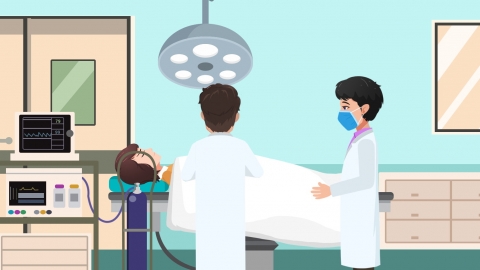What are the side effects of liposuction on the body?
Generally, liposuction refers to the procedure of suctioning fat. By inserting a liposuction needle into the subcutaneous fat layer and using auxiliary techniques such as negative pressure suction, accumulated fat cells are broken up and removed from the body to achieve localized fat reduction and body contouring. The usual reference price for liposuction ranges from 3,000 to 8,000 yuan per session, and improvements are typically noticeable within 3 to 6 months. However, possible side effects include uneven skin surface, skin laxity, bleeding and hematoma, infection, and nerve damage. A detailed analysis is as follows:

1. Skin Irregularities
During liposuction, if the physician's technique is improper and fat is unevenly suctioned from the same area, it may lead to an uneven skin surface after surgery, affecting physical appearance.
2. Skin Laxity
After a significant amount of fat is removed, the skin may not contract quickly, leading to skin laxity. This condition is especially noticeable in older individuals with poor skin elasticity, causing the skin to appear wrinkled and loose.
3. Bleeding and Hematoma
Liposuction disrupts subcutaneous blood vessels, causing bleeding. If there is significant bleeding that is not promptly drained, a hematoma may form, presenting as localized swelling and intensified pain. Severe cases may lead to additional complications such as infection.
4. Infection
If strict aseptic techniques are not followed during surgery or postoperative care is inadequate, the wound may become infected by bacteria or other microorganisms. Infection can cause localized symptoms such as redness, swelling, fever, and pain, and in some cases may lead to systemic symptoms like fever and fatigue, affecting overall health.
5. Nerve Damage
There are numerous nerves beneath the skin, and these nerves may be damaged during liposuction. After nerve injury, symptoms such as numbness, tingling, and reduced sensation may occur in the affected area, impairing normal sensory function of the skin, and recovery may take a prolonged period.
In daily life, individuals considering liposuction must choose reputable medical institutions and experienced physicians. Preoperatively, it is essential to communicate thoroughly with the physician to determine whether surgery is suitable. Postoperatively, follow the physician's instructions strictly, including keeping the wound clean, avoiding strenuous activities, taking medications as prescribed, and attending follow-up appointments.




